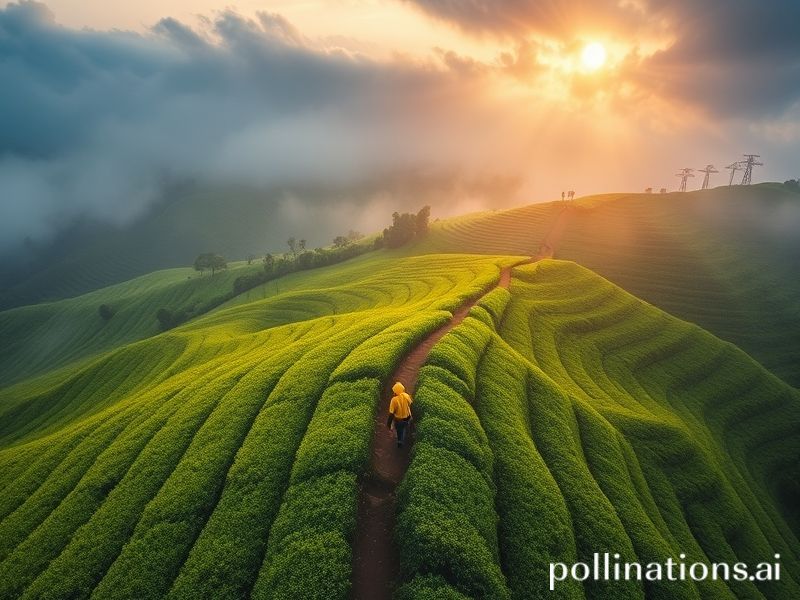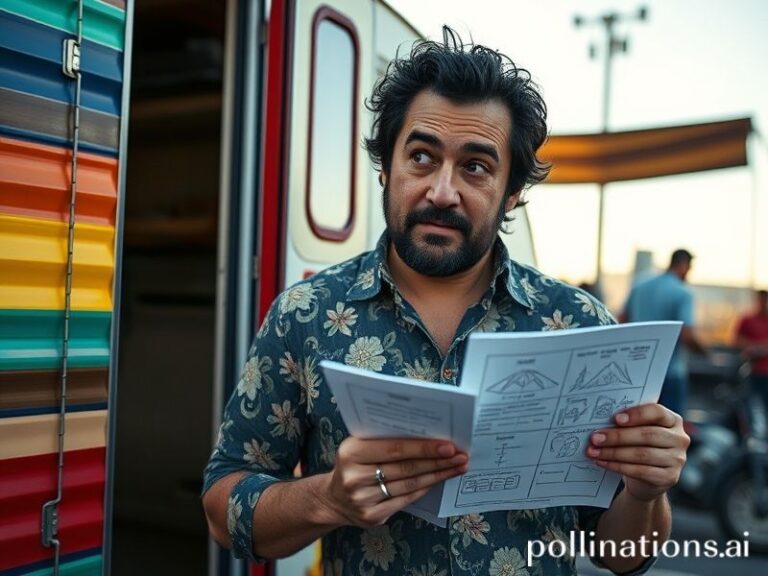Rwanda’s Global Rebrand: From Genocide to Davos Darling in 30 Years Flat
**The Land of a Thousand Hills and a Million Narratives: Rwanda’s Global Rebrand**
KIGALI—Picture a country that managed to go from genocide to green-washed Davos darling in less than three decades—a sort of national phoenix routine performed without the luxury of a tranquil afterlife. Welcome to Rwanda, the ultimate case study in how to monetize redemption while the rest of the planet still debates whether you’re allowed back at the adults’ table.
The international community, never fond of nuance, loves a tidy arc: horror, forgiveness, economic miracle, roll credits. Rwanda delivers that script with cinematographic precision. Kigali’s streets are cleaner than a Swiss sanatorium, plastic bags have been hunted to extinction, and Wi-Fi flows faster than the local beer. Donors arrive, snap photos of spotless boulevards, tweet something inspirational about resilience, and fly home before anyone asks why hotel rates rival Geneva.
Of course, the real plot twist is that Rwanda’s government discovered you can outsource dissent. Strike a trade deal with London, offer to process Britain’s unwanted asylum seekers, and—abracadabra—suddenly human-rights critiques are tempered by diplomatic politesse. Even the most principled NGOs discover their budgets have elastic principles when Rwandan immigration officials stamp their visas. Call it “constructive engagement,” call it “realpolitik,” just don’t call it before coffee unless you enjoy irony with your caffeine.
Economically, the nation pivoted from tea leaves to tech brochures. The master plan envisions Rwanda as “Africa’s Singapore,” a slogan that overlooks Singapore’s lack of hostile neighbors and surplus of coastline. No matter: drone delivery start-ups buzz above coffee plantations, and every visiting venture capitalist gets a lanyard and a government-issued selfie with a gorilla. Gorilla tourism, incidentally, costs $1,500 an hour—proving that primates, unlike humans, can charge premium rates for their continued existence.
Geopolitically, Rwanda has become the Switzerland of the Great Lakes, if Switzerland occasionally sent troops across the lake. Peacekeepers in Central African berets speak Kinyarwanda, refugees in Congolese camps speak Kinyarwanda, and mineral supply chains speak the universal language of plausible deniability. The United Nations issues reports; the African Union issues communiqués; everyone issues disclaimers. Meanwhile, coltan keeps flowing like a confidential whisper, and smartphones globally vibrate with Congolese ingredients laundered through Rwandan paperwork.
Western diplomats, embarrassed by their ’94 radio silence, now compete to praise Kigali’s gender-parity parliament and plastic-free Saturdays. It’s progressive penance on layaway: applaud today, defer awkward questions about term limits until the afterlife. The EU signs another aid agreement, Britain charters another deportation flight, and the international press corps self-edits adjectives like “authoritarian” into “strong-willed,” because nobody wants to be the boor who brings up the past while dessert is served.
Yet beneath the LED streetlights, the old questions persist: Can stability engineered from the top become soil for genuine democratic roots, or does concrete set too fast? Does a spotless capital reflect national healing or merely disciplined optics? And at what point does the world’s appetite for an uplifting narrative become complicity in selective amnesia?
For global audiences, Rwanda remains a parable you can customize: redemption story, authoritarian cautionary tale, green-tech frontier, or geopolitical Rorschach test. Pick your filter, swipe right on the version that flatters your worldview. Just remember that countries, unlike tweets, can’t be deleted once the trending cycle moves on. The hills are still counting, quietly, in a thousand accents the algorithm hasn’t learned to translate.







